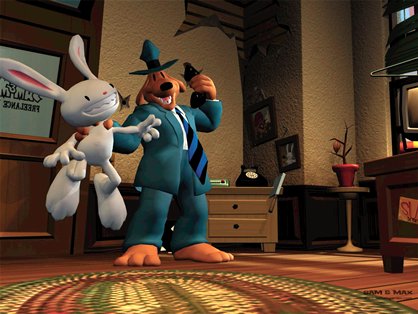Short circuit
Getting to the long and the short of shrinking games
Garriott, who’s taking a rocket into space in October 2008 (no joke, he’s becoming the sixth space tourist), estimates that his early Ultima games had from 40 to 100 hours of content. But in the ’80s, when games were made from volcanic rock and buffalo hide, developers didn’t even discuss lengths. They had a ‘we’ll see how long it is when we’re done’ attitude. “Now we plan our initial play time early in the process,” says Garriott.
The length of a game gives the developer insight into its requirements, from soundtrack to level assets, voice-acting to script. According to Joe Falke, game designer behind Clive Barker’s Jericho, different factors came into play when deciding on Jericho’s length - team size, development time, and budget. “We measured those factors against Clive’s original vision for the game,” he says. “Another contributing factor was how much story we could pack into 45 minutes of cutscenes. After making all these projections, we sat down with Clive and plotted out the story with these constraints in mind.” The finished result: seven hours, or so, of content.

Above: Sam & Max are usually called out in reviews for being too short - but put them all together and you'd have a long damn game
But there are unsavoury reasons for shorter games. Explorations into new technologies, cross-platform constraints, and tight deadlines can all reduce a game from a giant haystack to just a lone needle. Cost counts too, says Falke. “Every extra 10 minutes you throw into a game costs more money, man hours and design. Someone has to sit and generate the assets for a new section of level. Subsidiary costs also rise: every extra 10 minutes must also be sent through QA.”
On the whole, shorter games are less a product of tight-fisted accountants and more due to consumer demand. These days, games are considered much like movies or books - most people don’t want to spend three months toiling over a shooter. Valve released stats showing that only half of players finished Episode One, and that’s only five hours long.
“It’s the basic ideology that modern gamers would rather have five hours of a Hollywood blockbuster than 10 hours of pretty good content,” says Falke. Like a flamboyant guest at a house party, sometimes games are better when they don’t outstay their welcome. Portal’s three hours seemed just right, and there’s an argument to be made that the first Half-Life trailed off around the Xen levels, while HL2 was bang on the money. If a game ends without leaving you feeling frustrated and unsatisfied, then perhaps it’s done a good job. Conversely, a game that lasts hundreds of hours can be a massive turn-off.
Sign up to the GamesRadar+ Newsletter
Weekly digests, tales from the communities you love, and more


